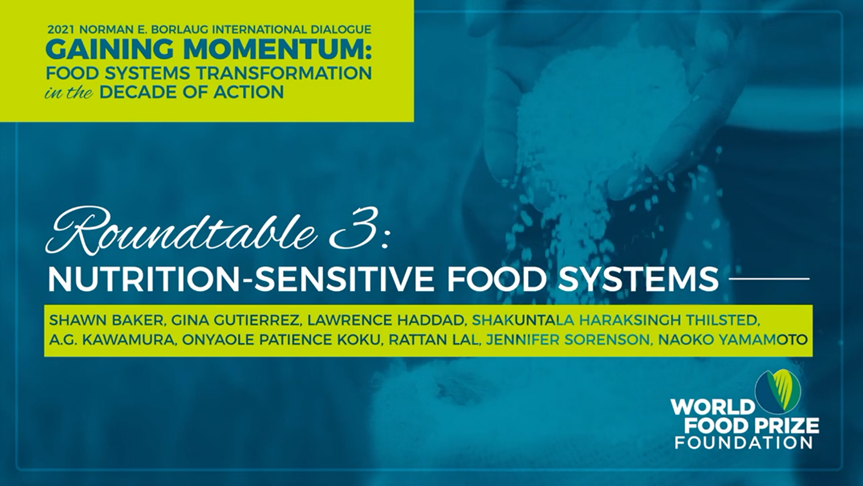ECOSOC at 80: Renewing Multilateralism in an Age of Global Uncertainty
On 23 January, the United Nations Economic and Social Council (ECOSOC) convened a commemorative session…
One of my highlights of the past year was 2021 Borlaug Dialogue Roundtable on Nutrition-Sensitive Food Systems organised by Barbara Stinson’s team at the World Food Prize Foundation. I had the privilege of moderating a discussion between experts, farmers, and past World Food Prize winners on how to achieve better nutrition globally. It is key to improve access to and affordability of healthier foods, including fruits and vegetables, pulses, dairy, and blue foods.

Dr Naoko Yamamoto, WHO’s Assistant Director-General for Universal Health Coverage – Healthier Populations, opened the floor by defining that a nutrition-sensitive food system aims to help more people access safer and healthier food. COVID-19 has been a wakeup call which showed how fragile food systems are. She added that measures to contain the virus such as lockdowns, as well as long and complex supply chains, affected food availability. The most vulnerable were the hardest hit. Sadly, if nothing is done in 3 years, over 300,000 additional children will die from malnutrition-related diseases.
Shawn Baker serves as the Chief Nutritionist for the U.S. Agency for International Development (USAID). He emphasized how critical the situation really is as 45% of deaths in children under 5 is attributed to malnutrition. He then stated that the key factor to food system transformation is political will. To get this kind of action, a broad set of actors must come to understand the importance of nutrition. Quoting 2021 World Food Prize winner, Dr Thilsted who said, “The food systems may be feeding the planet but it is certainly not nourishing the planet”, Mr Baker reflected on the need to make nutrition the main goal of food systems and work backwards. He admitted cost is a main challenge but appealed for political will to be rallied behind solutions such as optimizing the impacts of large-scale food fortification or supporting SMEs to produce nutritious food.
Collectively, this is the most esteemed panel I have had the opportunity to moderate, including:
From Dr Lal highlighting that good nutrition starts with healthy soils to Dr Thilsted’s well-made point that we are equally dependent on healthy aquatic systems, it led to one of the best discussions I have heard on why all parts of our farming sector are needed to deliver the nutrition the world needs. It is also clear that many farmers are themselves working to advance nutrition programs in their own communities. That point was then taken up by Dr Haddad who made a clear call for private sector to do more to advance food systems.
The entire panel concluded that to address the challenge of making healthy diets available to all, especially children, we must make nutrition the core of our food systems. Strengthening community engagement and fostering greater government accountability and transparency has been shown to improve access to healthier foods. This is why commitments from the recent Tokyo Nutrition for Growth Summit 2021 are key to accelerating progress on the path of nutrition-sensitive food systems. Government and private sector donors pledged more than US$27 billion at the Summit this to address the global malnutrition and hunger crisis. A leap forward, but still short of the estimated $70 billion required. With intensified implementation efforts, the world, and especially the most vulnerable, will stand to gain from a happier, healthier population.